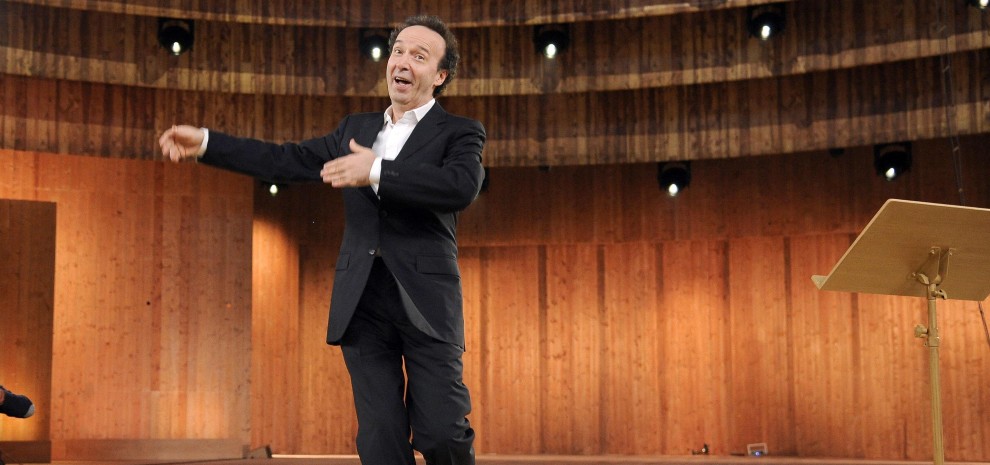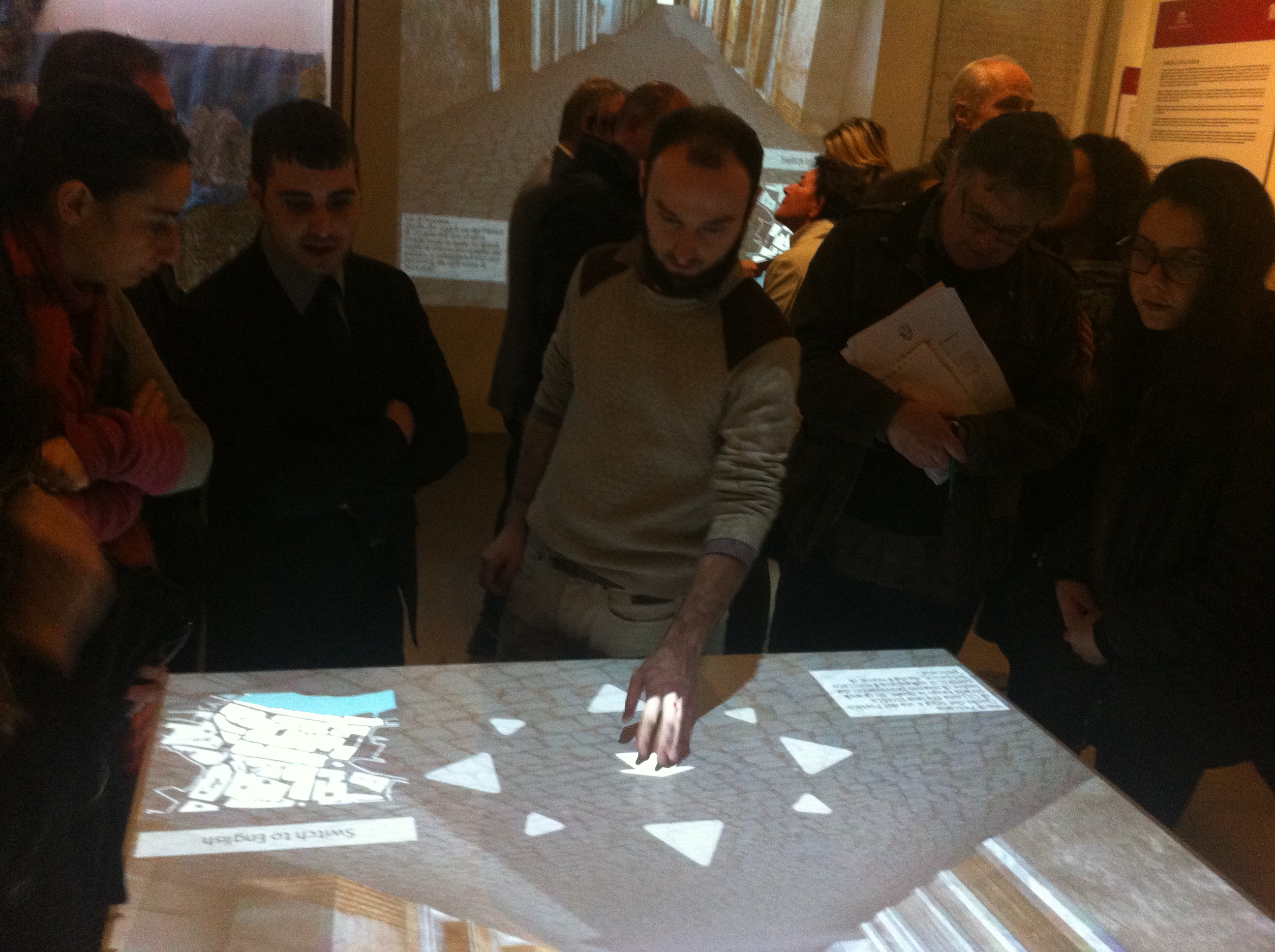
 |
| Valued Colleagues |
 By Guido Vitale* By Guido Vitale*Our colleagues Ada Treves and Rossella Tercatin, journalists whose professional development started in our newsroom at the Union of Italian Jewish Communities, have both recently published extremely interesting articles in other newspapers. The byline of Ada appeared in the prestigious monthly "IL- Intelligence in Lifestyle", published by "Il Sole 24 Ore", Italy's main financial daily ("Graffette per tutti"). And that of Rossella appeared in the leading Israeli online newspaper, "Times of Israel" ("Italian town's Arab Street decked with menorahs for Xmas"). For us there couldn’t have been a better Hanukkah present. *Guido Vitale is the editor-in-chief of Pagine Ebraiche. |
 |
| Italian Word of the Week: GIARDINO |
| By Daniela
Gross This is a difficult season for gardeners. When you look out the window and see only bare trees, dry lawns and no flowers for miles, it's inevitable to feel a bit gloomy. However we can find comfort in fantasizing about our ideal garden. In these “gardening dreams” there is one fabulous unattainable “giardino“ (“garden”) that none of us will ever forget. It is the mythic “Giardino dei Finzi-Contini – The Garden of the Finzi Continis”, a novel by Giorgio Bassani, one of the most important Italian Jewish writers, published in 1962. The book was made famous worldwide by Vittorio De Sica’s 1971 movie, which won the Oscar for Best Foreign Language Film. The story is set in Ferrara, a small and fascinating city in Northern Italy, which before the Second World War hosted a flourishing Jewish Community. Here lived the narrator and the Finzi-Contini children who came from a prominent and sophisticated family, both Jews. Their complicated relationship, chronicled in the dramatic period from the rise of the dictator Benito Mussolini to the deportation of the Italian Jewish Community, are the subject of the novel. But there is another central character in the book like in the movie, and it is the garden. Hidden within the walls of the beautiful Finzi-Contini house, full of magnificent and ancient trees, it guards the secrets, and the hopes of these youths destined to be so atrociously affected by history. It is a place of peace and joy, which will always remain in our hearts. |






This newsletter is published under difficult conditions. The editors of this newsletter are Italian journalists whose native language is Italian. They are willing to offer their energy and their skills to give international readers the opportunity of learning more about the Italian Jewish world, its values, its culture and its traditions.
In spite of all our efforts to avoid this, readers may find an occasional language mistake. We count on your understanding and on your help and advice to correct these mistakes and improve our publication.
Pagine Ebraiche International Edition is published by the Union of Italian Jewish Communities (UCEI). UCEI publications encourage an understanding of the Jewish world and the debate within it. The articles and opinions published by Pagine Ebraiche International Edition, unless expressly stated otherwise, cannot be interpreted as the official position of UCEI, but only as the self-expression of the people who sign them, offering their comments to UCEI publications. Readers who are interested in making their own contribution should email us at desk@ucei.it
You received this newsletter because you authorized UCEI to contact you. If you would like to remove your email address from our list, or if you would like to subscribe using a new email address, please send a blank email to desk@ucei.it stating "unsubscribe" or "subscribe" in the subject field.
© UCEI - All rights reserved - The articles may only be reproduced after obtaining the written permission of the editor-in-chief. Pagine Ebraiche - Reg Rome Court 199/2009 – Editor in Chief: Guido Vitale - Managing Editor: Daniela Gross.
Special thanks to: Francesco Moises Bassano, Susanna Barki, Monica Bizzio, Angelica Edna Calò Livne, Eliezer Di Martino, Alain Elkann, Daniela Fubini, Benedetta Guetta, Sarah Kaminski, Daniel Leisawitz, Annette Leckart, Gadi Luzzatto Voghera, Yaakov Mascetti, Francesca Matalon, Jonathan Misrachi, Anna Momigliano, Giovanni Montenero, Elèna Mortara, Sabina Muccigrosso, Lisa Palmieri Billig, Jazmine Pignatello, Shirley Piperno, Giandomenico Pozzi, Daniel Reichel, Rachel Silvera, Adam Smulevich, Simone Somekh, Rossella Tercatin, Ada Treves.
Questo notiziario è realizzato in condizioni di particolare difficoltà. I redattori di questo notiziario sono giornalisti italiani di madrelingua italiana. Mettono a disposizione le loro energie e le loro competenze per raccontare in lingua inglese l'ebraismo italiano, i suoi valori, la sua cultura e i suoi valori. Nonostante il nostro impegno il lettore potrebbe trovare errori e imperfezioni nell'utilizzo del linguaggio che faremo del nostro meglio per evitare. Contiamo sulla vostra comprensione e soprattutto sul vostro aiuto e sul vostro consiglio per correggere gli errori e migliorare.
Pagine Ebraiche International Edition è una pubblicazione edita dall'Unione delle Comunità Ebraiche Italiane. L'UCEI sviluppa mezzi di comunicazione che incoraggiano la conoscenza e il confronto delle realtà ebraiche. Gli articoli e i commenti pubblicati, a meno che non sia espressamente indicato il contrario, non possono essere intesi come una presa di posizione ufficiale, ma solo come la autonoma espressione delle persone che li firmano e che si sono rese gratuitamente disponibili. Gli utenti che fossero interessati a offrire un proprio contributo possono rivolgersi all'indirizzo desk@ucei.it
Avete ricevuto questo messaggio perché avete trasmesso a Ucei l'autorizzazione a comunicare con voi. Se non desiderate ricevere ulteriori comunicazioni o se volete comunicare un nuovo indirizzo email, scrivete a: desk@ucei.it indicando nell'oggetto del messaggio "cancella" o "modifica".
© UCEI - Tutti i diritti riservati - I testi possono essere riprodotti solo dopo aver ottenuto l'autorizzazione scritta della Direzione. Pagine Ebraiche International Edition - notiziario dell'ebraismo italiano - Reg. Tribunale di Roma 199/2009 - direttore responsabile: Guido Vitale - Coordinamento: Daniela Gross.
Realizzato con il contributo di: Francesco Moises Bassano, Susanna Barki, Monica Bizzio, Angelica Edna Calò Livne, Eliezer Di Martino, Alain Elkann, Daniela Fubini, Benedetta Guetta, Sarah Kaminski, Daniel Leisawitz, Annette Leckart, Gadi Luzzatto Voghera, Yaakov Mascetti, Francesca Matalon, Jonathan Misrachi, Anna Momigliano, Giovanni Montenero, Elèna Mortara, Sabina Muccigrosso, Lisa Palmieri Billig, Jazmine Pignatello, Shirley Piperno, Giandomenico Pozzi, Daniel Reichel, Rachel Silvera, Adam Smulevich, Simone Somekh, Rossella Tercatin, Ada Treves.





